Intel Core i9-9900K and Core i7-9700K Review - mcmullenalliat
Nowadays we send away finally exhibit you how Intel's new octa-nucleus 9th-gen processors do. On that point's a portion to survey, then we won't consume much time going over the specs considering the CPUs have been up for pre-tell now for 10 days now and nothing from the spec canvas is a mystery.
On hand for testing we experience the Core i9-9900K -- actually we ended up with a couple of of these, with more tests and comparisons in the works for later on -- and we also bear the i7-9700K which is basically the same CPU, but crucially, with Hyper-threading handicapped.
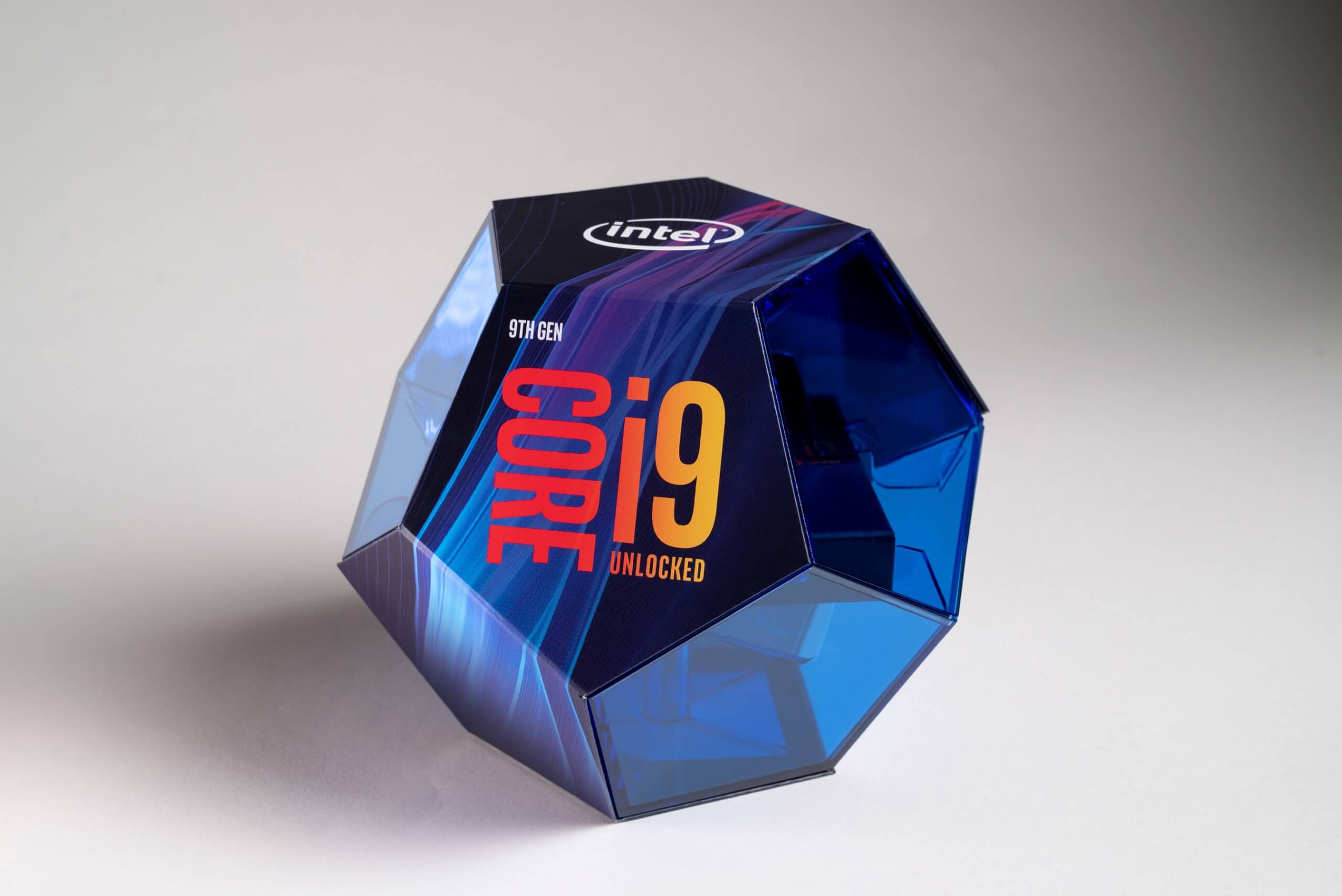
The Core i9-9900K is an 8-core mainframe with Hyper-threading enabled for 16 logical threads. It operates at a base frequency of 3.6 GHz but will further as high as 4.7 GHz on all cores with a uttermost various core frequency of 5 GHz. The L3 cache has been increased from the 8700K's 12MB up to 16 MB and quite shockingly despite packing 2 more cores and 4MB Thomas More cache, the TDP rating cadaver at 95 Watts which was already a suspiciously low rating for the 8700K. We'll explore the impact of this in a fleck.
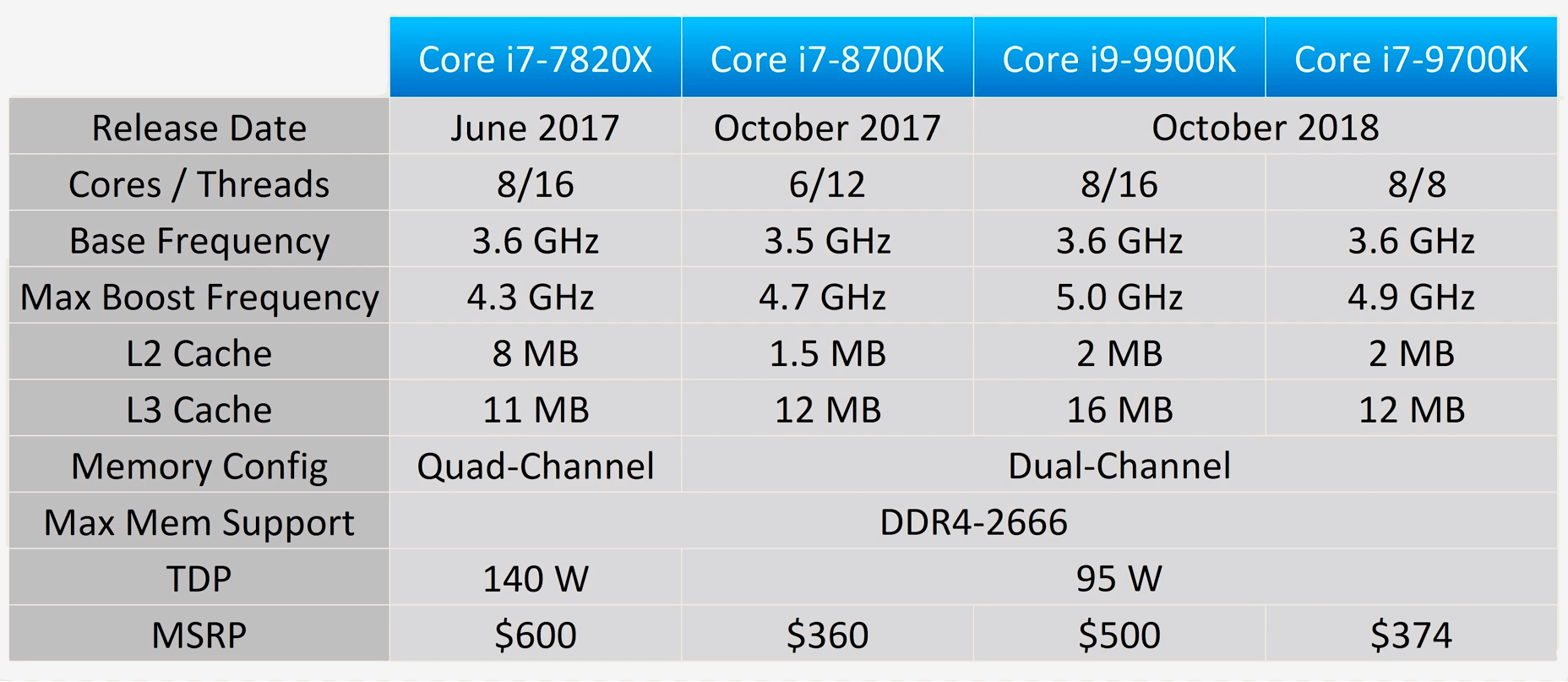
The Core i7-9700K packs the Lapplander eight cores but can only process 8 simultaneous togs. Information technology comes clocked at the same 3.6 GHz base oftenness while the all-core and single-essence time speeds remittent by a marginal 100 MHz. The L3 cache capacity is dropped pull down to 12 MB, too.
For testing we're using the MSI Z390 Godlike, only also used the Asrock Z390 T'ai chi Ultimate to confirm the results. Both boards were tested using DDR4-3200 CL14 retentivity and this same retentiveness was put-upon happening all platforms without any manually-keyed timings. The nontextual matter card of choice is Gigabyte's RTX 2080 Ti Gaming OC. We take over rafts of results to go off thusly let's get started!
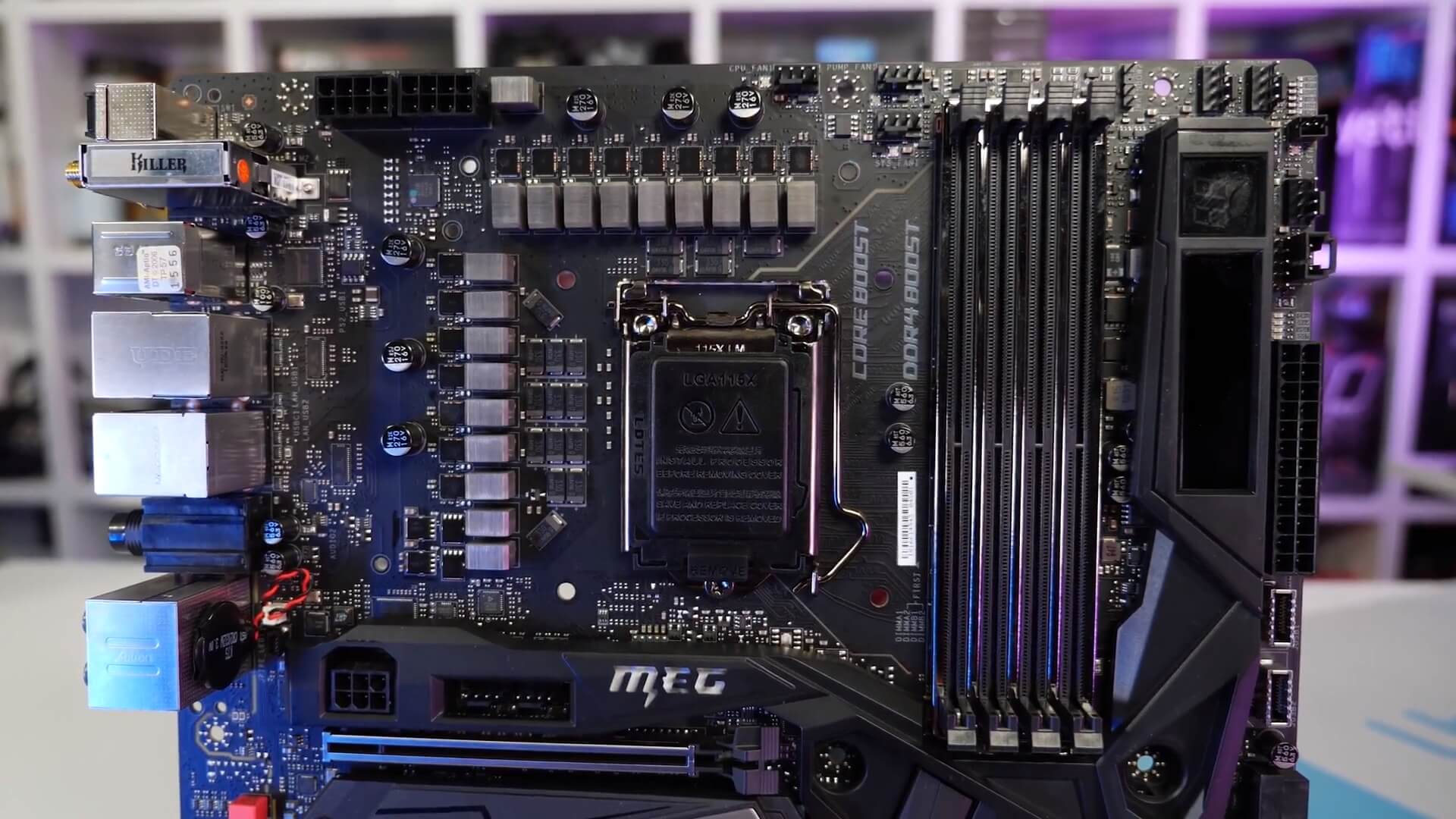
Benchmarks

Forward in the lead we have the memory bandwidth results and unsurprisingly the unweathered Coffee Lake refresh CPUs are happening equivalence with previous models such as the Core i7-8700K. So everything is as foretold here, let's check out some Cinebench results.
As anticipated the 9900K and 9700K provide the highest out of the box single thread stacks we've seen to date, easily breaking the 200 pts roadblock thanks to a 5 and 4.9 GHz time speed when using just a individualist gist.
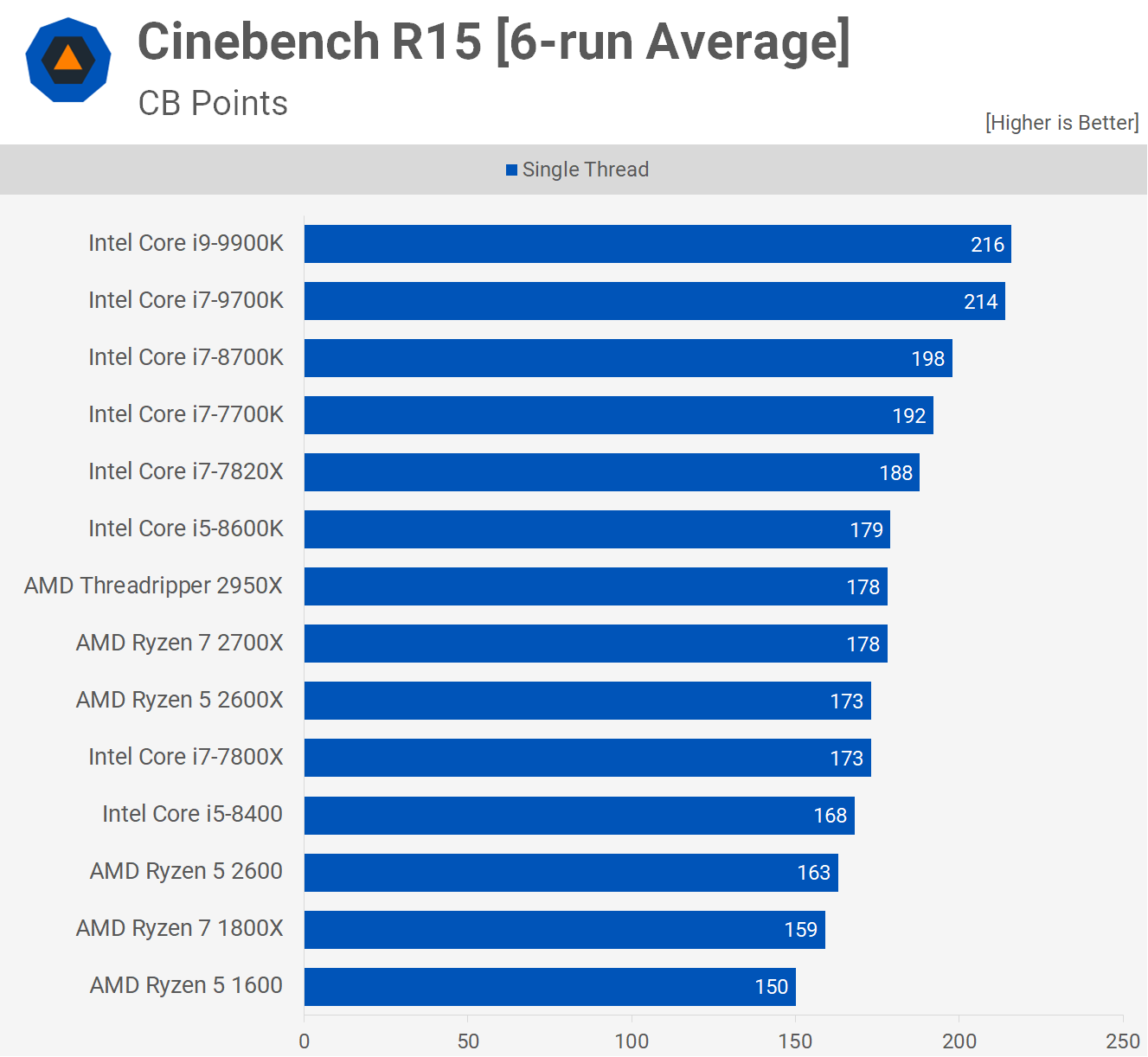
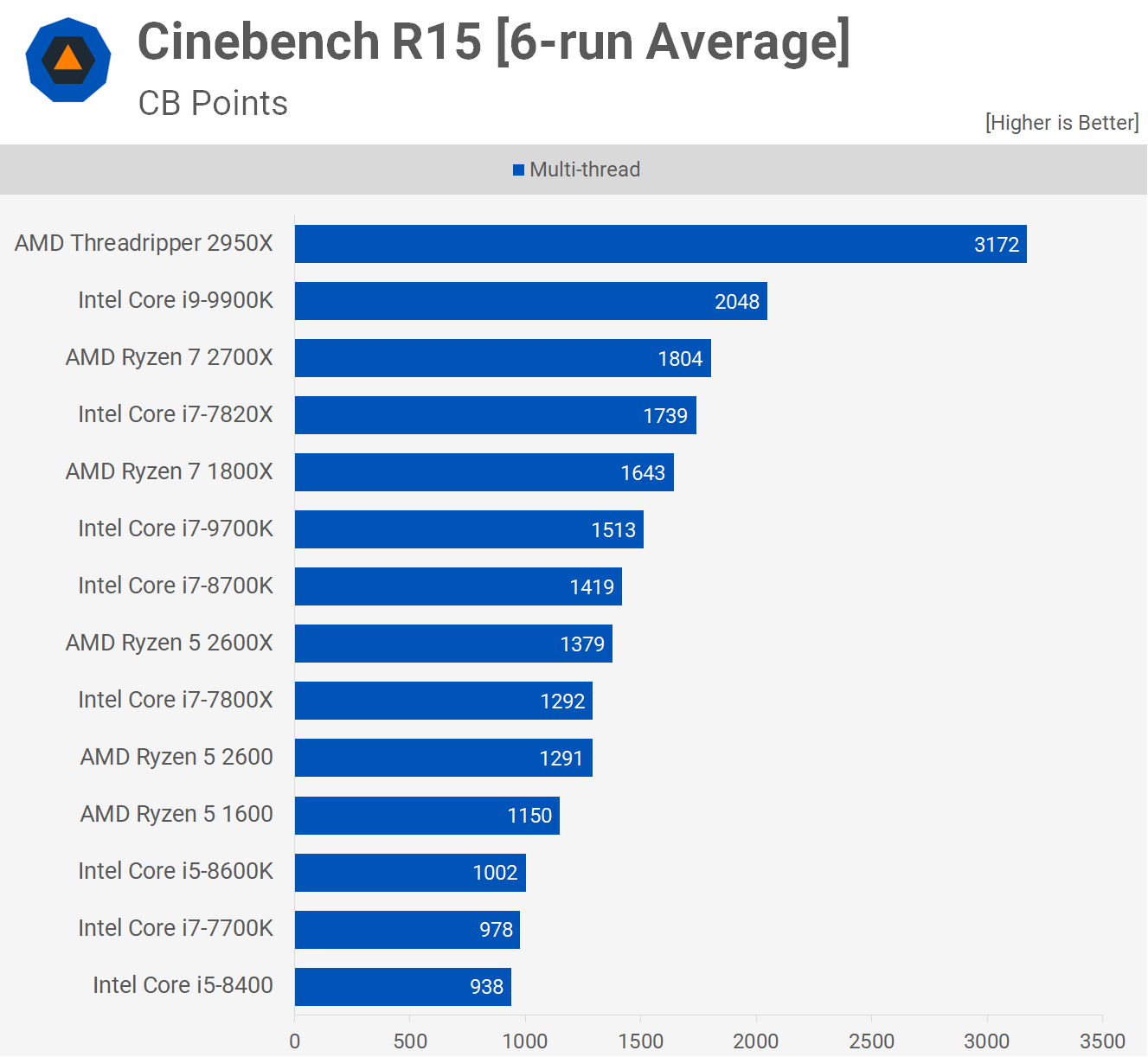
With each cores active the 9900K breaks the 2000 Pt barrier making it 14% faster than the Ryzen 7 2700X. Meanwhile the 9700K was managed a score of sensible over 1500 pts that placed IT just behind the quondam 1800X and just ahead of the 8700K. That likewise meant it was 26% slower than the 9900K.
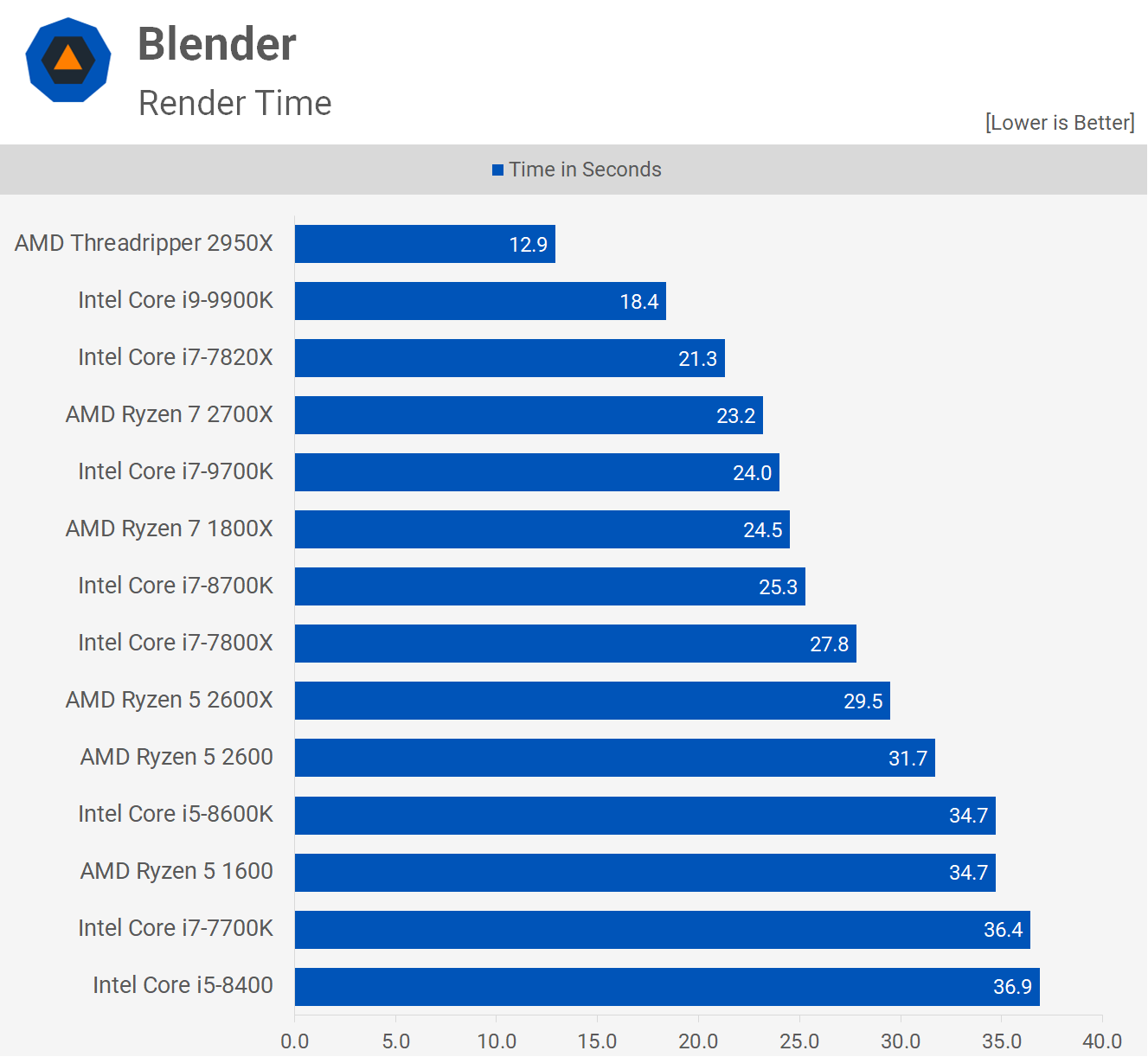
Minded what we power saw in Cinebench IT's no surprise that the 9900K outclassed the 2700X in Blender, reducing the workload completion time by rather large 23%. The 8-core Ryzen CPU was a fraction faster than the 9700K though.

Moving on to Saint Elmo's fire and here we determine a similar story, the 9900K reduced the render time past 20% from the 2700X, attractive clean 96 seconds. Though if your mostly rendering then the Threadripper 2950X makes more sense and I'll talk more nearly that a little later on.

The last rendering application we tested with is V-Shaft of light and here the 9900K shriveled the depict time by 18%, taking just 62 seconds opposed to 76 seconds for the 2700X. The 9700K was a lot little impressive, taking a few seconds longer than the 8700K, qualification it slower than both the 1800X and 2700X.
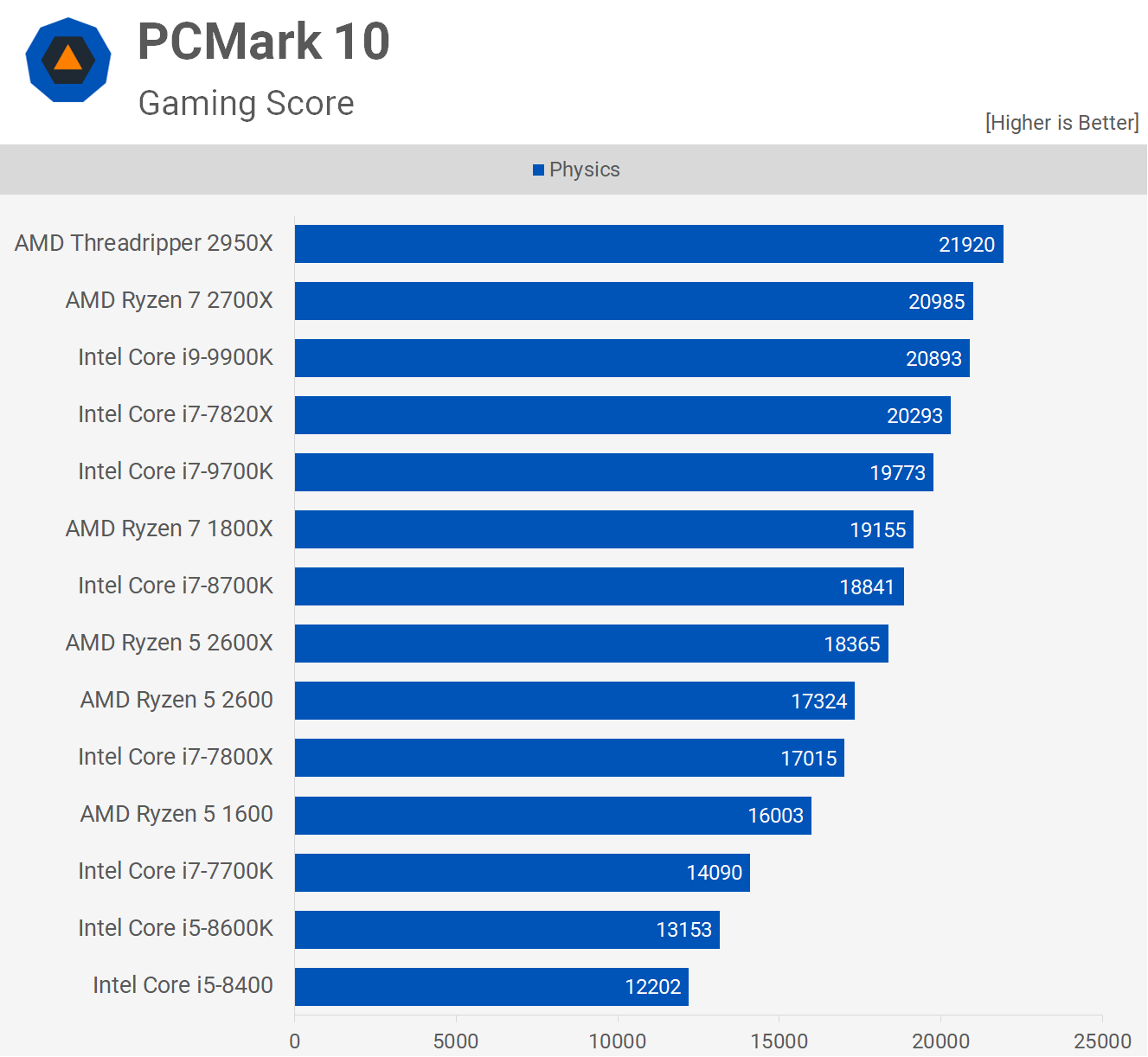
The PCMark 10 synthetic gaming benchmark relies heavily on both clock cannonball along and substance calculate, that said IT's interesting to project the 9900K only twin the 2700X here while the 9700K was able to butt ahead of the older 1800X.
Source: https://www.techspot.com/review/1730-intel-core-i9-9900k-core-i7-9700k/
Posted by: mcmullenalliat.blogspot.com


0 Response to "Intel Core i9-9900K and Core i7-9700K Review - mcmullenalliat"
Post a Comment